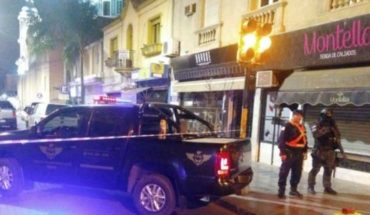Trípolí.-Seven members of the militias allied with the Government recognized by the United Nations in Tripoli (GNA) died last night in combat with forces under the command of the Marshal Khalifa Hafter, strong man of Libya, around the locality of Al Zahra and the axis of Al Rabia , which leads to the old international airport of the capital, strategic position that covet both contenders, reported today to EFE security sources. ” The enemy is trying to advance overland. They managed to destroy three cannons of the GNA forces. Seven soldiers were killed and fifteen were injured, “the source admitted. The official spokesman for the aforementioned force, Mohamed Guenono, said that militias loyal to the government held by the United Nations in Tripoli destroyed a logistic caravan of the forces of Hafter in the vicinity of the city of Gharyan, located 60 kilometers south of Tripoli and base of operations of the Marshal. ” Our forces also bombarded the area of Kasr Ben Ghachir (next to the international Airport). Violent battles were also fought in the area of Heera “, neighboring to Gharyan”, revealed the spokesman without providing other details. The south of Tripoli is the scene of daily fighting since last April 4 troops led by Marshal Hafter, guardian of the executive established in the eastern city of Tobruk, raised a fence to expel the government held by the UN since 2016 in the capital.
Since then, the clashes have caused more than 500 dead, more than 3,000 wounded and forced more than 30,000 people to become internally displaced, according to data from the World Health Organization (WHO). The fighting has also affected the thousands of irregular migrants who are confined to Tripoli’s detention centres and are trying to move to safer places in the north of the city.
The battle for control of the capital, which of winning Hafter would give virtually absolute control of the country, has highlighted the complex network of foreign interference that has Libya since the revolution in 2011 ended the dictatorship of Muammar al Gaddafi. Since then, Libya is a failed state, victim of chaos and civil war, with two governments currently facing: one fruit of the failed peace plan proposed by the UN in 2015, and which hardly controls Tripoli and some populations in the west. And another led by Marshal Hafter, who supervises the parliament of Tobruk, dominates all the oil resources and controls practically the remaining 70% of the national territory. The political conflict benefits Mafia networks dedicated to the smuggling of weapons, fuel and people-which have become the real engine of the national economy-and various jihadist groups
Original source in Spanish
translated from Spanish: Killed and wounded by heavy fighting in Tripoli
May 23, 2019 |





